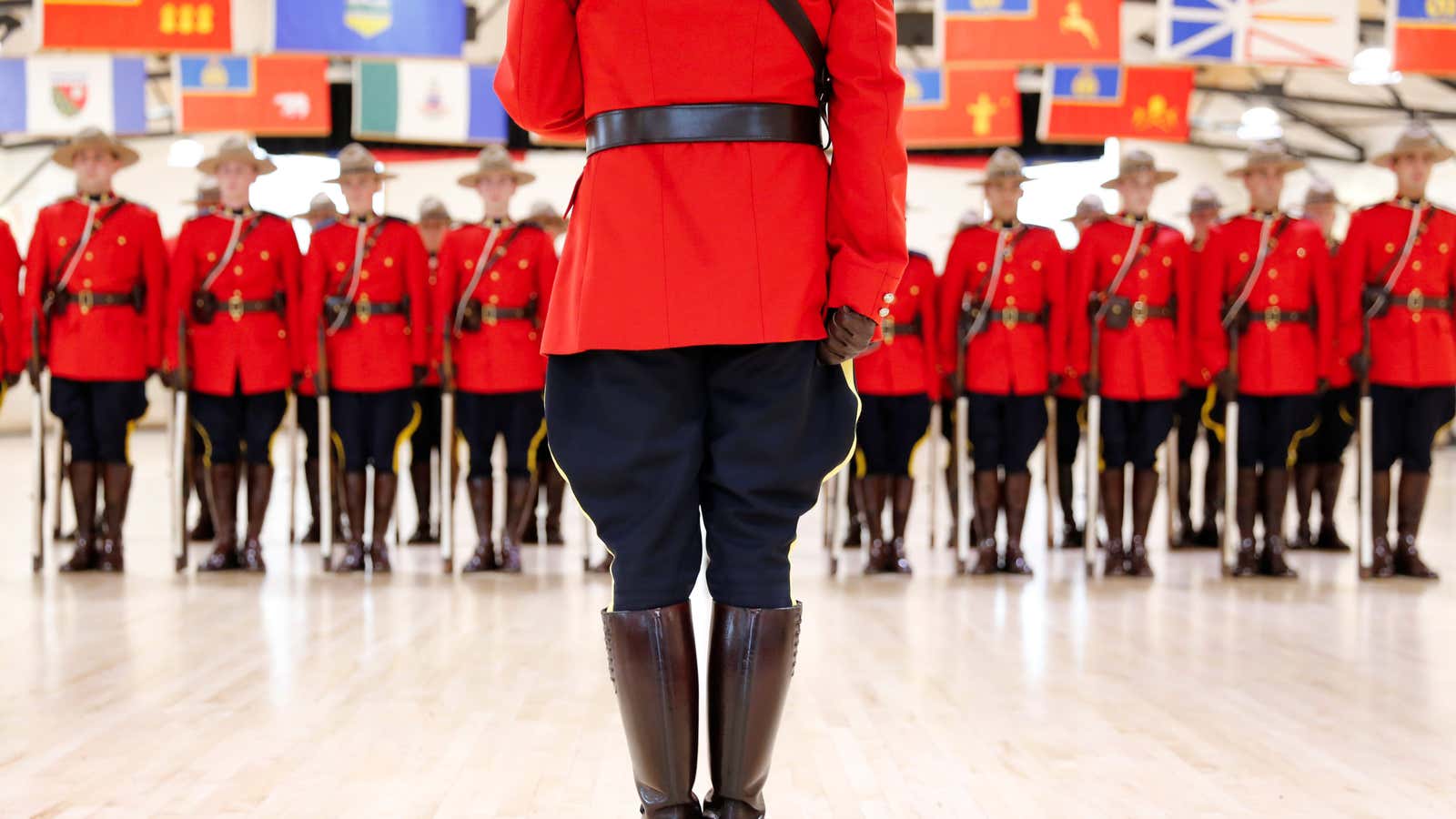How is a world leader to tackle the global diplomacy challenge that is US president Donald Trump?
The president’s zigzagging positions and volatile behavior have left world leaders flummoxed about how to respond. French president Emmanuel Macron led with a confrontational approach, as exemplified by his address to the American public after Trump pulled out of the Paris Accord—and the famously awkward handshake between the two leaders. (Macron later said his steely-eyed grip with Trump was meant to “show that he would not make small concessions, not even symbolic ones, but also not overdo things.”)
Meanwhile, German chancellor Angela Merkel seemed more resigned to Trump’s contentious posturing at the North Atlantic Treaty Organization (NATO) gathering last month. Europe is on its own, she said during a campaign rally a few days later, leaving the world scrambling to figure out exactly what she meant as she drank a beer.
Until recently, Canada’s prime minister Justin Trudeau had tried to keep things friendly between the North American neighbors, largely avoiding criticism of Trump’s unorthodox policies. But this week Canada’s foreign affairs minister Chrystia Freeland forcefully articulated a stand against the erratic US president. The main takeaway from her speech, made during a session of parliament, was that Canada would not quietly stand by as Trump upends the world order. Rather, she said Canada must start preparing now for a future in which it can maintain its national security and trade interests without the help of the superpower to the south.
“The fact that our friend and ally has come to question the very worth of its mantle of global leadership, puts into sharper focus the need for the rest of us to set our own clear and sovereign course,” she said. “For Canada, that course must be the renewal, indeed the strengthening, of the postwar multilateral order.”
It was arguably the clearest, most detailed response to Trump’s isolationist rhetoric of any world leader yet. It was also remarkable in its matter-of-factness, given how much Trump has disrupted politics as usual. It would be “naïve and hypocritical” to pretend Americans still believe in the international order and the US’s key position within it, she said. “To say this is not controversial: it is simply a fact,” she added.
The speech was a big shift for Canada, which has traditionally sided with the US on foreign policy. It also offers a blueprint for other nations struggling with how to re-plot their relationship with the world’s most powerful country.
Freeland didn’t mention Trump by name, but she didn’t have to. Throughout the speech, she forcefully countered some of his most controversial positions. On the topic of unemployment, she remarked that it was “wrong to view the woes of our middle class as the result of fiendish behavior by foreigners.” On how to treat immigrants, she said, “Canadians know about living side-by-side with people of diverse origins and beliefs… in harmony and peace. We’re good at it. Watch how we do it.”
She also outlined the three main tenets that will guide Canada’s foreign policy, and they all appear to be expressly designed to withstand Trump’s America First policy. The first is to strengthen the international institutions that underpin international law, such as the United Nations, the World Trade Organization and NATO. Freeland, who worked as a journalist in Moscow before entering politics, was clear-eyed about the threat of leaving powerful global actors unchecked:
Canadians understand that, as a middle power living next to the world’s only super power, Canada has a huge interest in an international order based on rules. One in which might is not always right. One in which more powerful countries are constrained in their treatment of smaller ones by standards that are internationally respected, enforced and upheld.
At the same time, she said Canada has to be well prepared to fight on its own, if need be. To that end, her second principle is to reinforce Canada’s armed forces. Pre-Trump, Canada could reliably piggy-back on the US’s security apparatus. That’s less certain now. And as the US retreats from its world leader role, Freeland also suggested her country may be more willing to engage in conflicts abroad. Indeed on Wednesday, one day after the speech, the Trudeau administration announced a $62.3 billion plan to bulk up the Canadian military with troops and equipment over the next 20 years.
Freeland’s third goal is to add new trading partners to counterbalance its biggest client, the US—as the two countries and Mexico prepare to revamp NAFTA.
Even as she pointed out the growing divide between the US and Canada, she graciously thanked the US for its past sacrifices in defending international cooperation, calling it “an indispensable nation.” Canada, she added, would continue reaching out to America “with open hands and open hearts.”
